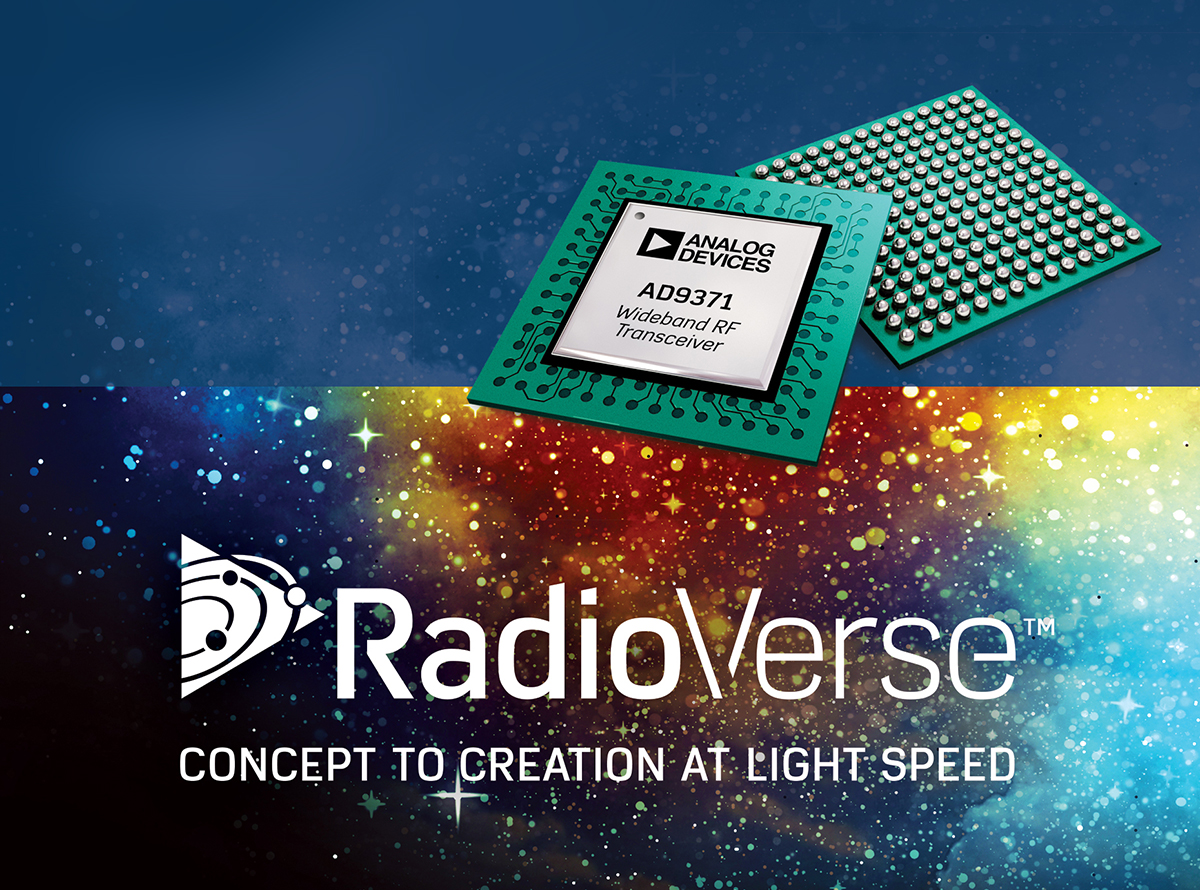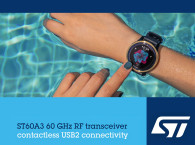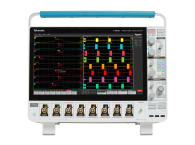Analog Devices unveiled its RadioVerse technology and design ecosystem, which provides integrated transceiver technologies, a robust design environment, and market-specific technical expertise to move new radio designs from concept to creation quickly. This new ecosystem includes the AD9371 integrated wideband RF transceiver, enabling simple, versatile solutions for wireless infrastructure, and instrumentation applications.
The new ecosystem’s transceiver technologies reduce radio size, weight and power (SWaP), while the design environment offers board support packages, software and tools to help customers simplify and accelerate radio development across a range of applications including wireless infrastructure, aerospace and defense electronics, and electronic test and measurement. RadioVerse is redefining radio design at the circuit, architecture, system and software levels to simplify integration and speed time-to-market.
As part of the RadioVerse technology and design ecosystem release, ADI introduced the AD9371, the latest addition to the integrated wideband RF transceiver product series. It is a highly versatile, carrier-grade, system-on-chip radio solution that achieves a wide RF tuning range of 300 MHz to 6 GHz, 100-MHz signal bandwidth, and power consumption of less than 5W under standard operating conditions. It replaces or eliminates as many as 20 discrete radio components and can be used as a common design platform across multiple applications and standards, increasing R&D efficiency and reducing time-to-market of the end product. Other products in the wideband RF transceiver series include the AD9361 and AD9364.
RadioVerse provides integrated wideband RF transceiver evaluation boards that directly connect to an FPGA development platform, allowing to perform chip-level performance evaluation and rapid prototyping of complete wireless scenarios using a single hardware platform. The boards are supported by a toolkit that includes HDL, Linux drivers, software API, a GUI, and design files necessary for customers to kick-start their own designs. An exact, verified model of the AD9371 transceiver, enabling advanced simulation and analysis of the transceiver, can be developed by using MATLAB and Simulink. End users can then use the model to configure the transceiver and verify performance, correct problems earlier, and accelerate completion of their RF system design.
According to Analog Devices, the RadioVerse design environment will continue to expand to include third-party design houses, COTS providers and other partners to further enable customers to rapidly deploy their products to market.
www.analog.com/RadioVerse
www.analog.com/AD9371

- on Electronics Corner
- News
Analog Devices Simplifies Wireless System Design with RadioVerse Technology and Design Ecosystem
May 26 2016, 03:10

Analog Devices unveiled its RadioVerse technology and design ecosystem, which provides integrated transceiver technologies, a robust design environment, and market-specific technical expertise to move new radio designs from concept to creation quickly. This new ecosystem includes the AD9371 integrated wideband RF transceiver, enabling simple, versatile solutions for wireless infrastructure, and instrumentation applications.





